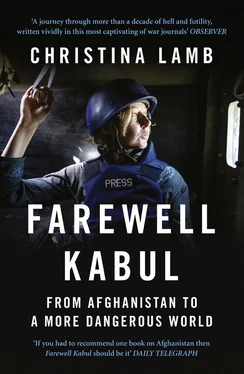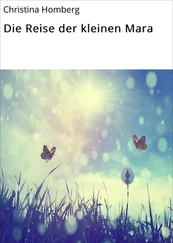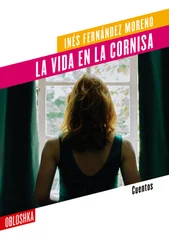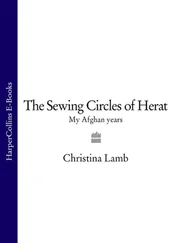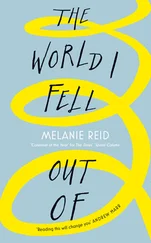Yet more than a military failure, this was a political failure. Just as a lack of imagination had failed to predict the possibility of using passenger aeroplanes as weapons, a lack of imagination caused us to assume people wanted the same as us, and that because our enemy were uneducated they were ignorant savages we could easily outsmart. It was a strategy that ignored tribal realities and other people’s national interests, including those of our key partner. Along the way, the West lost the moral high ground by giving positions of power to those the Afghan people most blamed for the war, and by the detention and torture of prisoners, some of whom had simply been in the wrong place at the wrong time.
Over those thirteen years I watched with growing incredulity as we fought a war with our hands tied, committed too little too late, became distracted by a new war of our own making based on wrong information, and turned a blind eye as our enemy was being helped by our own ally. Yet only when Osama bin Laden was found living in a house in a Pakistani city, not far from the capital, did it seem to dawn on people that we may have been fighting the wrong war.
Throughout this period I lived in Pakistan, Afghanistan, London and Washington, as well as covering the other war and its aftermath in Iraq, and visiting Saudi Arabia, which was the birthplace of fifteen of the nineteen 9/11 hijackers. I spoke to almost all key decision-makers, including heads of state and generals, as well as embedding with American soldiers and British squaddies actually fighting the wars. Most of all I talked to people on the ground. I travelled the length and breadth of Pakistan, from the tribal areas to the mountain valleys of Swat, from the cities of Quetta, Lahore and Karachi to the jihadist recruiting grounds in madrassas and in remote villages of the Punjab. In Afghanistan my travels took me far beyond Helmand – from the caves of Tora Bora in the south to the mountainous badlands of Kunar in the east; from Herat, city of poets and minarets in the west, to the very poorest province of Samangan in the north, full of abandoned ghost villages. I also travelled to Guantánamo, met Taliban in Quetta and from the Quetta shura , visited jihadi camps in Pakistan, and saw bin Laden’s house just after he was killed. Saddest of all, I met women whom we had made into role models and who had then been shot, raped, or forced to flee the country.
On the way I had several narrow escapes – from being ambushed by Taliban with the first British combat troops in Helmand to travelling on Benazir Bhutto’s bus when it was blown up in Pakistan’s biggest ever suicide bomb. I lost many friends in those years, a number of whom appear in the following pages.
I could not have lived through all this and just walked away. I have written this book because I thought it was a story that needed telling. How it ends is yet to be told.
British general to Afghan tribal chief in 1842 during the First Anglo–Afghan War: ‘Why are you laughing?’
Tribal chief: ‘Because I can see how easy it was for you to get your troops in here. What I don’t understand is how you plan to get them out.’
Kabul, Christmas Eve 2001
I sat on the roof of the Mustafa Hotel on the seat of an old Soviet MiG fighter jet and looked out over Kabul feeling happy. Happy endings are few and far between in my foreign correspondent world, where we fly in to report war, misery and disaster in time for our deadlines, then out again back to our comfortable lives, disturbed only by an occasional nightmare or sad memory that floods in unexpectedly to darken a moment.
The hills all around were dotted with tiny wattle houses in squares of beige and sky-blue, melding into each other like a Braque painting. There was ‘Swimming Pool Hill’, named after the Olympic-sized concrete pool the Russians had built on its top, long empty and last used by Taliban to push blindfolded homosexuals to their deaths off the diving tower; ‘TV Mountain’, with a broken antenna and littered with rocket casings from years as a major battleground for rival mujaheddin groups; and ‘Cannon Hill’, where until all the fighting started an old man would fire off a cannon every day at noon, a tradition begun in the nineteenth century by the ‘Iron King’ Abdur Rahman to give his unruly countrymen a sense of time.
Along the tops I could see remains of the old city walls picked out in relief, starting and ending at the Bala Hissar fortress, an ancient polygon of walls which crowned Lion’s Gate Mountain and managed to be both crumbling and imposing. The name means ‘high fort’, and from this perch for centuries ruled Afghan kings (some of whom ended up in its dungeons, the Black Pit) and, long ago, some of the world’s mightiest conquerors. Among them were Timur the Lame, the Tartar despot who levelled cities from Moscow to Baghdad and built towers from the skulls of their people; and Babur, the first Moghul Emperor, who adored Kabul for its gardens, where he counted thirty-two different kinds of tulips. Babur loved this city, describing it as ‘the most pleasing climate in the world … within a day’s ride it is possible to reach a place where the snow never falls. But within two hours one can go where the snow never melts.’
I loved it too, even though it was a long time since Kabul had been a city of gardens. Rather it was a city of ghosts, many of whose bodies were buried in the hills. Some of them were from my own country. Britain had fought two wars with Afghanistan, losing two and perhaps drawing the third. Yet initially the country seemed so benign that when British forces first stormed Kabul Gate in 1838, to oust king Dost Mohammed and install their own king, Shah Shuja, they took with them their wives, hundreds of camels laden with provisions such as smoked salmon, cigars and port, and even packs of hounds for hunting foxes in the Hindu Kush. Wives wrote of swapping tips on growing sweet peas and geraniums with local Afghans1 and of outings to boat on the lake or ice-skate in winter. By January 1842 the British would have fled. The king they had installed on a gilded throne under richly painted ceilings in the Great Hall of the Bala Hissar and described as “a man of great personal beauty”2 ended up slaughtered at its gates. The defeat of what was then the most powerful nation on earth – and slaughter of thousands of its forces – by marauding tribesmen was the greatest military humiliation ever suffered by the West in the East.
Yet they went back. In the second war, the British Envoy Sir Louis Cavagnari was hacked to death in his residence inside the fort in September 1879 by tribal brigands angry at not being paid promised stipends, and at British interference in their land. In revenge the British general Frederick Roberts led a column on Kabul called the ‘Army of Retribution’, and had forty-nine tribal leaders hanged from gallows inside the Bala Hissar. He ordered the fort’s destruction as ‘a lasting memorial of our ability to avenge our countrymen’, though in the end it was left. Such was the feared reputation of the land of the Bala Hissar that in 1963 Britain’s Prime Minister Harold Macmillan would declare, ‘Rule number one in politics – Never Invade Afghanistan.’
I had first travelled in these valleys and mountains in the late 1980s when the Russians were being driven out, so was only too familiar with all those stories of Afghanistan as the ‘Graveyard of Empires’. Indeed, Kabul still had a British cemetery, with graves going back to those killed in the First Anglo–Afghan War, if any reminder were needed.
But if we knew those things then, we were not thinking about them. If I shivered, it was because of the cold. The first snow was falling softly, and loud Bollywood music blared discordantly from the street below. On the roof were other journalists from Japan, Italy and Australia, shuffling around their satellite dishes to try to find the right angle to locate satellites in the sky so they could magically transmit their copy to their foreign desks. ‘Oh for fuck’s sake, bring back the Taliban!’ joked one, struggling to be heard over the jarring music. I laughed, catching a snowflake on my tongue and thinking there was nowhere I would rather be.
Читать дальше
